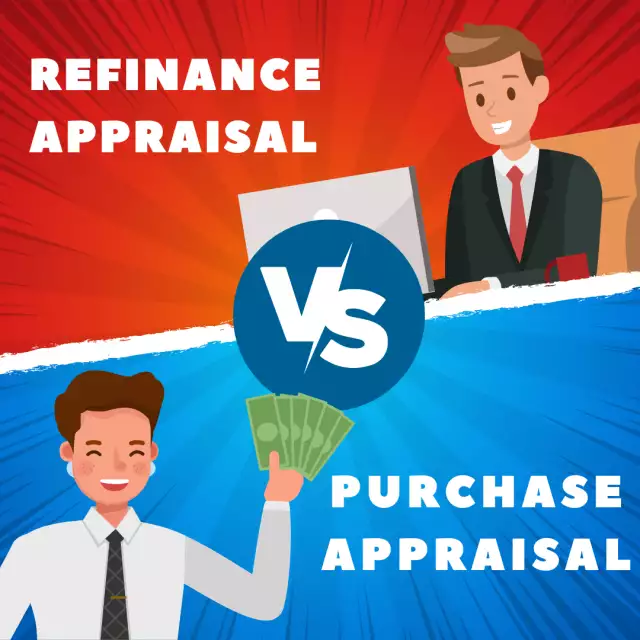Real Estate Taxes vs. Property Taxes: Understanding the Differences and Implications for Property Owners
Real Estate Taxes vs. Property Taxes: Understanding the Differences and Implications for Property Owners
Real estate taxes and property taxes are terms that are often used interchangeably, but they are not exactly the same thing. In general, real estate taxes are a broader category of taxes that include property taxes as well as other taxes related to the ownership of the real estate, while property taxes are specific taxes on real property, such as land and buildings. Understanding the difference between these two types of taxes is important for homeowners and real estate investors, as it can have a significant impact on their finances.

1. Definition and Differences:
Real estate taxes are taxes on the ownership and transfer of real property, such as land, buildings, and other structures. They are imposed by local governments, and the revenue generated from these taxes is used to fund public services and infrastructure, such as schools, roads, and parks. Property taxes are a specific type of real estate tax that is based on the assessed value of the property.
The main difference between real estate taxes and property taxes is that real estate taxes are a broader category that includes other taxes related to real property ownership, such as transfer taxes, stamp duties, estate taxes, gift taxes, and capital gains taxes. Property taxes, on the other hand, are specific taxes on the value of the property.
2. Types of Real Estate Taxes:
There are several types of real estate taxes, including property taxes, transfer taxes, stamp duties, estate taxes, gift taxes, and capital gains taxes.
- Property Taxes:These are taxes on the assessed value of a real property, such as land and buildings. Property taxes are typically assessed and collected by local governments, such as cities, counties, or school districts. The revenue generated from property taxes is used to fund public services and infrastructure.
- Transfer Taxes:These are taxes that are imposed when real property is transferred from one owner to another. Transfer taxes are typically based on the sale price of the property and are paid by the buyer or seller, depending on local laws.
- Stamp Duties:These are taxes that are imposed on certain legal documents related to real property ownership, such as deeds and mortgages. Stamp duties are typically based on the value of the property and are paid by the buyer or seller, depending on local laws.
- Estate Taxes:These are taxes that are imposed on the transfer of property upon the owner's death. Estate taxes are typically based on the value of the property and are paid by the estate.
- Gift Taxes:These are taxes that are imposed on the transfer of property as a gift. Gift taxes are typically based on the value of the property and are paid by the donor.
- Capital Gains Taxes:These are taxes that are imposed on the profit earned from the sale of real property. Capital gains taxes are typically based on the difference between the sale price and the original purchase price of the property.
3. Property Tax Calculation:
Property taxes are calculated based on the assessed value of the property. The assessed value is typically determined by a local government assessor, who evaluates the property based on factors such as location, size, and condition. The assessor may also take into account any improvements that have been made to the property, such as renovations or additions.
Once the assessed value of the property has been determined, the property tax is calculated by multiplying the assessed value by the local tax rate. The tax rate is typically expressed as a percentage of the assessed value, and it may vary depending on the local government and the type of property.
4. Real Estate Taxation Policies:
There are several policies that can affect real estate taxes, including tax exemptions, tax credits, and tax deductions.
- Tax Exemptions:These are exemptions that allow certain types of properties to be exempt from property taxes. Examples of properties that may be exempt from property taxes include government-owned properties, religious organizations, and certain types of charitable organizations.
- Tax Credits:These are credits that can be applied against the amount of property tax owed. Examples of tax credits that may be available include credits for installing energy-efficient upgrades to a property or for purchasing a property in a designated historic district.
- Tax Deductions:These are deductions that can be taken on a taxpayer's income tax return for property taxes paid during the year. Property owners can deduct their property taxes from their federal income taxes, up to a certain limit.
5. Impacts on Homeowners:
Real estate taxes and property taxes can have a significant impact on homeowners, both financially and in terms of homeownership affordability.
- Financial Impacts:Property taxes can be a significant expense for homeowners, especially in areas with high tax rates. Property owners must budget for these expenses, and failure to pay property taxes can result in penalties, interest, and even foreclosure.
- Homeownership Affordability:Property taxes can also affect the affordability of homeownership. In areas with high property tax rates, homeownership may be less affordable for low-income households, as property taxes can add a significant amount to monthly housing expenses.
- Real Estate Market Effects:Real estate taxes and property taxes can also affect the real estate market. High property tax rates may make it more difficult for homeowners to sell their properties, as potential buyers may be deterred by the high tax burden.
6. Pros and Cons:
There are advantages and disadvantages to both real estate taxes and property taxes.
- Advantages of Real Estate Taxes:Real estate taxes can generate revenue for local governments to fund public services and infrastructure. They can also help ensure that property owners contribute their fair share to the community.
- Disadvantages of Real Estate Taxes:Real estate taxes can be a significant expense for property owners, and high tax rates can make homeownership less affordable for low-income households.
- Advantages of Property Taxes:Property taxes are a stable source of revenue for local governments, as they are based on the value of the property rather than fluctuations in the economy. They can also incentivize property owners to maintain their properties and keep them in good condition.
- Disadvantages of Property Taxes:Property taxes can be a significant expense for property owners, and high tax rates can make homeownership less affordable for low-income households. Property taxes can also be difficult to predict, as they are subject to changes in property values and local tax rates.
7. Reform and Criticism:
Real estate taxes and property taxes have been the subject of criticism and proposed reforms.
- Criticism of Real Estate Taxes:Critics of real estate taxes argue that they can be a burden on homeowners and that they can be unfair, as they are not based on the ability to pay. Some also argue that real estate taxes can be regressive, as they may disproportionately affect low-income households.
- Criticism of Property Taxes:Critics of property taxes argue that they can be a burden on homeowners and that they can be unfair, as they are not based on the ability to pay. Some also argue that property taxes can discourage investment in real estate, as they may make it less profitable for investors.
- Proposed Reforms:Proposed reforms to real estate taxes and property taxes include changes to the assessment and valuation methods used to calculate property taxes, as well as changes to the tax rates themselves. Some also propose reforms to the tax exemptions and credits available to property owners.
| Real Estate Taxes | Property Taxes |
| Assessed on the value of real estate, including land and structures | Assessed on the value of a property |
| Typically collected by local governments | Used to fund local government services and infrastructure |
| Varies widely depending on location and property value | Varies widely depending on location and local tax policies |
| Assessment and valuation methods can vary | Assessment and valuation methods can vary |
| Exemptions and tax credits may be available | Exemptions and tax credits may be available |
| Can impact homeownership affordability and real estate market | Can impact homeownership affordability and real estate market |
| Advantages: generates revenue for local government, ensures property owners contribute fair share | Advantages: stable revenue source for local government, incentivizes property owners to maintain properties |
| Disadvantages: can be significant expense and less affordable for low-income households | Disadvantages: can be significant expense and less affordable for low-income households |
| Criticisms: can be unfair and regressive | Criticisms: can be unfair and discourage real estate investment |
| Proposed reforms: changes to assessment, valuation, tax rates, exemptions, and credits | Proposed reforms: changes to assessment, valuation, tax rates, exemptions, and credits |
Conclusion:
Real estate taxes and property taxes are important considerations for homeowners and real estate investors. Understanding the differences between these two types of taxes, as well as their impacts and potential reforms, can help property owners make informed decisions about their finances and their properties. It is important to note that real estate taxes and property taxes can vary widely depending on location, and property owners should research local tax rates and policies before making real estate decisions.
In summary, real estate taxes are taxes assessed on the value of real estate, including both land and any structures on the property. These taxes are typically collected by local governments and can vary widely depending on location and property value. Property taxes, on the other hand, are taxes assessed on the value of a property and are used to fund local government services and infrastructure. While there are advantages and disadvantages to both types of taxes, they are both important considerations for property owners and real estate investors.




